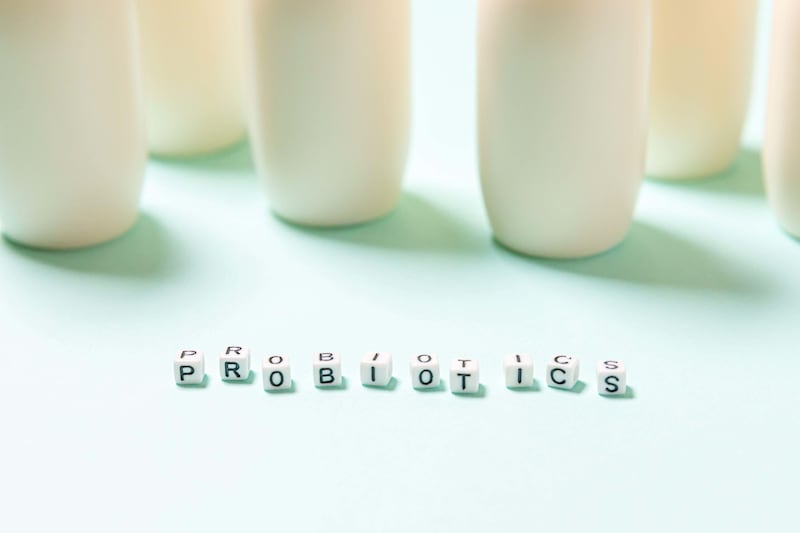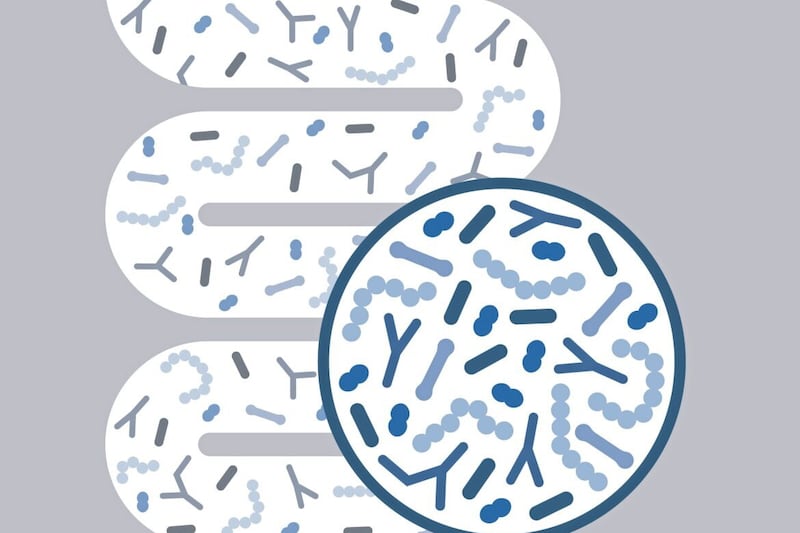A HEALTHY immune system is vital for keeping us well, and one proven way to support it is with probiotics.
Many studies have found these ‘good bacteria’ can help balance gut flora, helping produce protective substances which may ‘turn on’ the immune system to fight off bugs, and there are other benefits to making sure you get enough probiotics too.
We asked Glenn Gibson, a professor of food microbiology at University of Reading, who has studied probiotics and prebiotics extensively, and Dr Carrie Ruxton, a dietitian for the Health and Food Supplements Information Service (hsis.org) to tell us more about the friendly bacteria that live in our intestines, stomach and gastrointestinal tract…
:: What are probiotics?
The World Health Organisation defines probiotics as “live microorganisms which when administered in adequate amounts confer a health benefit on the host”. Ruxton says: “Probiotics are live ‘friendly’ bacteria in food or supplement form that can alter the balance of our own gut bacteria – assuming they reach the gut intact.”
:: What are the health benefits of probiotics?
“Lots,” says Gibson. “There are now over 26,000 research articles on their use. These include improved protection against gastroenteritis, reduced inflammation (hence the link to Covid), and boosting immunity – being harmless microbes, they’re good at stimulating non-specific immunity in the gut. Specific diseases like IBS (irritable bowel syndrome) and IBD (inflammatory bowel disease) have been looked at and there’s currently immense interest in obesity and gut-brain interactions (cognitive function).”
In addition, research by University of Plymouth last year found probiotic bacteria could help control the development and progression of colorectal cancer. While there’s also some evidence probiotics are helpful for reducing cholesterol, Gibson says there’s only limited “tenuous” evidence, if any, that they’re beneficial for reducing blood pressure and helping psoriasis and chronic fatigue syndrome.
Ruxton adds: “Many chronic health conditions, including type 2 diabetes, obesity, inflammatory bowel disease and bowel cancers, have been linked with an imbalance of gut bacteria, called dysbiosis, and optimal immune function – giving us defences against viruses such as coronavirus – depends on having the right bacteria in our gut.”
:: Can you get probiotics in food?
Probiotics are found in many fermented foods, including kefir (fermented milk), kombucha (fermented sweet tea), kimchi (spicy fermented cabbage), tempeh (fermented soya bean patties), miso (fermented soya bean paste) and sauerkraut (fermented cabbage), as well as yoghurt.
“Probiotics can also be found in supplements and special drinks such as Yakult,” says Ruxton. “It’s good to combine probiotics with prebiotics – dietary substances that boost numbers of ‘friendly’ bacteria and promote their activity. The most accessible prebiotics are tea, onions, garlic and leeks. These have been proven to help rebalance our gut microbiota.” Gibson explains that prebiotics are like fertilisers for live probiotic microbes already in the gut.
:: Who should take probiotics?
Ruxton says the diets of the British and Irish populations tend to be low in fibre, fruit and vegetables and high in animal protein, “which doesn’t do your gut microbiota any good”.
Our nutritional intake during infancy may also play a role. “However, people who are eating their five-a-day fruit and veg, and getting two to three daily servings of fibre-rich foods like wholegrain bread, pasta and rice, or high-fibre breakfast cereal, plus a few servings of fermented foods a week, should have a healthy gut microbiota. Everyone else should consider adapting their diets, or taking a probiotic supplement.”
:: Do you need to take supplements to get enough probiotics?
Gibson says the answer to this is yes, but Ruxton says it’s easy to get enough in the diet by including natural sources, boosting them with prebiotic foods, and ensuring you eat plenty of dietary fibre from wholegrains, fruit, vegetables, legumes and yoghurt.
“Fibre helps keep the gut in good condition and works hand-in-hand with friendly bacteria,” she explains. “Supplements, or probiotic drinks, can be useful if your diet isn’t perfect, or if your gut needs extra support – for example, if you’ve had a recent course of antibiotics, a viral illness, or are planning to travel abroad and want to avoid a dodgy tummy.”
:: What probiotics should you take?
Gibson says probiotics containing lactobacilli and bifidobacteria are the most well researched and have the best safety and efficacy records. “I like, and take, Multibionta and Actimel,” he says. “Other good ones are Yakult, Proven Probiotics, Protexin and Bio-Kult.”
However, he says product quality varies, with some probiotic products being very well researched and others not. “Another big issue is a lack of clarity on health claims – consumers are rightly bewildered at the range of products and a gross lack of information on what to choose.”
While Ruxton agrees that key species include bifidobacteria and lactobacilli, she says: “There’s no need to focus on any particular types or strains because scientific evidence suggests benefits for a range of bacteria. However, focusing on lactobacillus strains is a good start. And make sure the product guarantees most of the bacteria will survive the journey through your gut and reach the large intestine intact.”
:: Are there any potential problems that can be caused by probiotics?
Ruxton says people who are immunosuppressed, for example if they’re taking immunosuppressant drugs linked to organ transplants, should avoid probiotics because even ‘good’ bacteria, which would be harmless in most people, has the potential to cause infection in those with a suppressed immune system.
“Apart from that, probiotics don’t cause harm, even in young children,” she says. “In fact, foods containing natural probiotics have been eaten by people around the world for thousands of years.”
Gibson confirms that authentic probiotics are unlikely to cause any problems, pointing out: “Part of their definition is they must be safe and impart heath-promoting aspects. Suffice to say their track record of safety is as good as it is, or better, than for virtually anything else used to improve health.”








